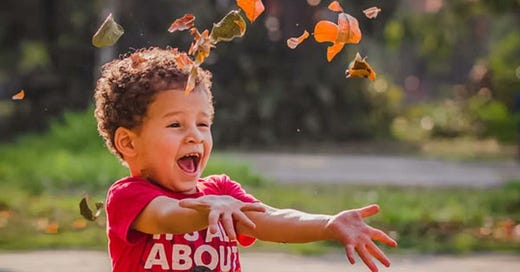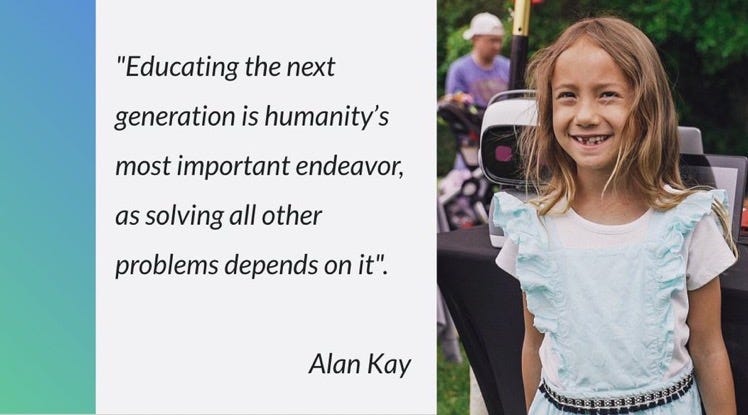Welcome to the seventy fifth edition of Small Talks. Every Friday, I highlight 6 areas of weekly joys and reflections in early childhood and the whole family. Small Talks leverages my experience at the intersection of education, philanthropy, and impact investing. Enjoy!
What I’m celebrating -
New research substantiates an intuitive connection: Sensitive caregiving during infancy linked to heightened reward responsivity and predicted superior executive functions ability....
Interesting framework by Bellwether Education that suggests that for a flexible learning ecosystem to function, an array of enabling conditions must develop.
Childcare innovator Otter was recently featured in some big media outlets, including the New York Times. The model of leveraging family child care and leveraging technology for parents to find child care is compelling. However, there are many open questions about quality (and safety). Also note that while innovations in early care & education are welcome, they are also not sufficient. They need to be paired with better policies and more perennial & equitable public funding.
On the topic of innovations, the GSV Cup is now open for applications. Note that early care and education entrepreneurial ideas are welcome. Learn more and apply: https://asugsvsummit.com/gsv-cup
For inspiration, you may enjoy this deeply touching message from a teacher …after 26 years!
What I’m listening to
Great interview with Sunil Gunderia, Chief Innovation Officer and Head of Mastery & Adaptive Products at Age of Learning on EdTech Insiders podcast, with some interesting insights about the organization’s process for evidence-based solutions. It concludes with a nice shout-out to…Small Talks!
What I’m reading -
An excellent book by Dan Schwartz, Jessica Tsang and Kristen Blair on the science of how we learn, covering a wide range of learning theories, from behaviorism (R is for Reward) to cognitive psychology (S is for Self-Explanation).
What I’m watching -
A fascinating TEDTalk by neuroscientist Sergiu Pasca on how his team has reverse engineered the human brain in the lab.
A beautiful short documentary on “building a parent nation” featuring Dana Suskind’s impactful work.
What I’m learning more deeply -
New NAEP results (the National Report Card or NAEP is a large representative sampling of children’s competencies in maths and reading in 4th grade) show that the pandemic erased two decades of progress in math and reading. Predictably, kids in early elementary grades have lost ground during the pandemic. They can recover with concentrated effort. But they also risk to disengage. Remediation has to be fun and interesting, not just rote.
“The national tests tell the story of a “decade of progress,” followed by a “decade of inequality” and then the “shock” of the pandemic, which came with a one-two punch. It erased the progress, and it exacerbated the inequality.” — Andrew Ho, Harvard education professor
The number of edtech tools in schools has almost tripled during the pandemic…nearly 1,500 edtech tools used per month per district. This raises lots of questions regarding privacy/security, inter-operability, and of course quality/efficacy.
The Secret to Reclaiming the American Dream by Derek Thomson in The Atlantic is a succinct overview of many of the key findings of Raj Chetty's work. The secret is to look at parents and friends.
A quote I’m pondering -
Feedback is a gift. Which part above is your favorite? What did I miss? What do you want more or less of? Other recommendations? Please kindly let me know. Thank to all of you who are sending me amazing suggestions.
If you enjoy this newsletter, please help spread the word by sharing with your friends, colleagues, and networks.
Have a wonderful week. Please stay safe and care for each other.
Isabelle









